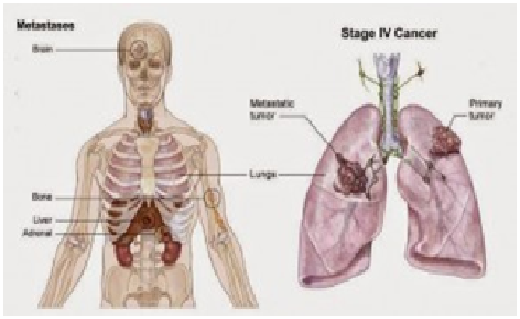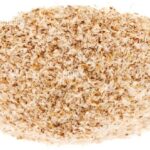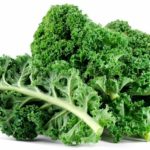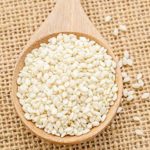Dear Reader, Humans need air, and cannot go more than a few minutes without it. Learn Early Diagnosis Helps to Stop Further Damage to Lungs. Therefore, we must take good care of our lungs, which are what we use to take in the air.
Each alveolus has a fine mesh of capillaries where the exchange of oxygen and carbon dioxide takes place. Oxygen molecules dissolve and migrate across a thin film of moisture from the air sac to the bloodstream.
Oxygenated blood is sent to the heart and then pumped around the body. At the same time, carbon dioxide in the blood crosses from the capillaries to the air sacs using the same film of moisture. The carbon dioxide is then breathed out.
The human body has an amazing ability to heal itself. This is clearly seen in ex-smokers As soon as an individual stops smoking, his lungs begin to heal. Stop smoking reduces a person’s risk of lung cancer and other lung diseases such as emphysema and chronic bronchitis.
Chronic bronchitis:
Bronchitis is an inflammation of the lining of your bronchial tubes, which carry air to and from your lungs. People who have bronchitis often cough up thickened mucus, which can be discolored. Bronchitis may be either acute or chronic.
Often developing from a cold or other respiratory infection, acute bronchitis is very common. Chronic bronchitis, a more serious condition, is a constant irritation or inflammation of the lining of the bronchial tubes, often due to smoking.
Emphysema:
Is a lung condition in which tiny air sacs in the lungs – alveoli – fill up with air. As the air continues to build up in these sacs, they expand and may break or become damaged and form scar tissue. The patient becomes progressively short of breath. Emphysema is a type of COPD (chronic obstructive pulmonary disease). The main cause of emphysema is long-term regular smoking.
Lung cancer:
Lung cancer is cancer that starts in the lungs. Cancer is a disease where cancer cells grow out of control, taking over normal cells and organs in the body.
There are two major types of lung cancer. Each type of lung cancer grows and spreads in different ways. Each type may be treated differently.
Smokers are more likely than nonsmokers to develop heart disease, stroke, and lung cancer
Smoking is estimated to increase the risk
For coronary heart disease by 2 to 4 times
For stroke by 2 to 4 times
Men developing lung cancer by 25 times
women developing lung cancer by 25.7 times
It causes diminished overall health, such as self-reported poor health, increased absenteeism from work, and increased healthcare utilization and cost.
Smoking and respiratory deceases
Smoking can cause lung disease by damaging your airways and the small air sacs (alveoli) found in your lungs.
Lung diseases caused by smoking include COPD, which includes emphysema and chronic bronchitis
If you have asthma, tobacco smoke can trigger an attack or make an attack worse.
Cigarette smoking causes most cases of lung cancer
Smokers are 12 to 13 times more likely to die from COPD than nonsmokers.
If you have any of these warning signs or symptoms, tell your healthcare provider as soon as possible.
What is COPD?
Chronic obstructive pulmonary disease (COPD) is a progressive lung disease that makes it difficult to breathe. “Progressive” means that the disease gets worse over time. COPD damages your lungs and prevents them from working as they are designed.
Chronic obstructive pulmonary disease (COPD) refers to a group of lung diseases that block airflow and make breathing difficult.
Chronic Cough: A cough that you have had for a month is chronic. This is an important early symptom.
Coughing up Blood: If you are coughing up blood, the blood may be coming from your lungs or upper respiratory tract.
Chronic Mucus Production: Mucus, also called sputum or phlegm, is produced by the airways. It is a defense response to infections or irritants. If your mucus production has lasted a month, this could indicate lung disease.
Wheezing: Noisy breathing or wheezing is a sign that something unusual is blocking your lungs’ airways or making them too narrow.
Shortness of Breath: Shortness of breath that doesn’t go away after exercising, or that you have after little or no exertion, is not normal.
Chronic Chest Pain: Unexplained chest pain that lasts for a month or more – especially if it gets worse when you breathe in or cough – can also be a warning sign.
How to take care?
Never smoke: Notice how it doesn’t say quit smoking, it says never smoke. That means don’t start smoking in the first place and don’t even try it.
Increase your aerobic capacity: Do some vigorous exercise that really gets you gasping for breath 3-4 times a week.
Breathe in through your nose: The hair in your nose acts as a filter and only lets extremely fine particles through, and keeps the rest and combines it with mucus.
Early diagnosis helps stop further damage to the lungs
Almost 50 percent of the patients have no symptoms and consider the regular cough and breathlessness as a process of aging.
Senior pulmonologist and critical care specialist explained “If a person is suffering from continuous chronic cough, bringing up the sputum and also snoring at night, these are some of the indications that the patient has COPD. The reason we are stressing on early diagnosis is that once the damage to the lungs is done it is irreversible in nature.”
The medicines only give symptomatic relief, but do not work towards reversing the damage. Most COPD patients have unexplained weight loss. Muscle dysfunction and nutritional abnormalities.
Doctors explained, “early identification helps to work on strengthening of the immune system by changing diet and physical exercise.”
Causes of COPD
The main cause of COPD is tobacco smoking. However, in the developing world, COPD often occurs in women exposed to fumes from burning fuel for cooking and heating in poorly ventilated homes.
Only about 20 percent of chronic smokers develop COPD. Some smokers develop less common lung conditions. They may be misdiagnosed as having COPD until a more thorough evaluation is performed.
Prevention: Unlike some diseases, COPD has a clear cause and a clear path of prevention. The vast majority of cases are directly related to cigarette smoking, and the best way to prevent COPD is to never smoke or to stop smoking.
If you’re a longtime smoker, these simple statements may not seem so simple, especially if you’ve tried quitting once, twice, or many times before. But, keep trying. It’s critical to find a tobacco cessation program that can help you quit for good.
Note: It’s your best chance for preventing damage to your lungs. Occupational exposure to chemical fumes and dust is another risk factor for COPD.
Food good for lungs: Always try to include garlic, fresh root ginger, chili, and fresh herbs in our daily intake, sometimes not all but at least 3 of these each day.
Chilli and curries are well known to help the respiratory system and garlic and ginger are well known for boosting the immune system. Broccoli is another, apples, walnuts, and many foods are nature’s natural medicines and help the body achieve its good working potential.
We all know that fruits and vegetables are very rich in nutrients. So it is important to include a generous serving of fruits and vegetables in your daily meal.
It is better to have lean proteins such as eggs, fish, white meat chicken, turkey, etc.
How to increase your willpower
*Willpower is nothing but the power of choice. When you begin to see the choices in each of the decisions that you make, and start to consciously choose what you decide on, you will develop a good amount of willpower!
*A person with weak willpower risks becoming a slave of his body and his habits. Being conducted by blind instincts, he will no longer have the right to choose.
*The good news is that willpower can be developed. Everyone can gain control over his desires, no matter how neglected his situation and his weakness might be.
*We can look at willpower like a muscle, there are some researchers who believe we might be able to strengthen our willpower by training it. As we go about our day, stress and normal self-control deplete our resources.
*The willpower response is a reaction to an internal conflict. You want to do one thing, such as smoke a cigarette or supersize your lunch, but know you shouldn’t. Or you know you should do something, like file your taxes or go to the gym, but you’d rather do nothing.
Seven points to follow
- Increase your capacity for pressure and manage stress
- Get more sleep to help your brain manage better energy
- Meditation
- Encourage yourself to stick to your plan
- Better exercise and nutrition
- Postpone things for later to gain focus on what’s important now
7. Work on Getting Rid of Bad Habits which benefit your health. So, these were the tips I am able to bring to your notice on how to protect the lungs and further damage. What are your views on the topic? Do let me know in the comments. If you like this article please share it. I will come back soon with another new post.
Note: If any serious health problems please consult your doctor.
Keep visiting Take Care













Very nice share
Going to share and subscribe
And thanks for the share I was looking for this type of topic.
Hi Doctor Sahaab, Thanks for visiting and for your feedback.